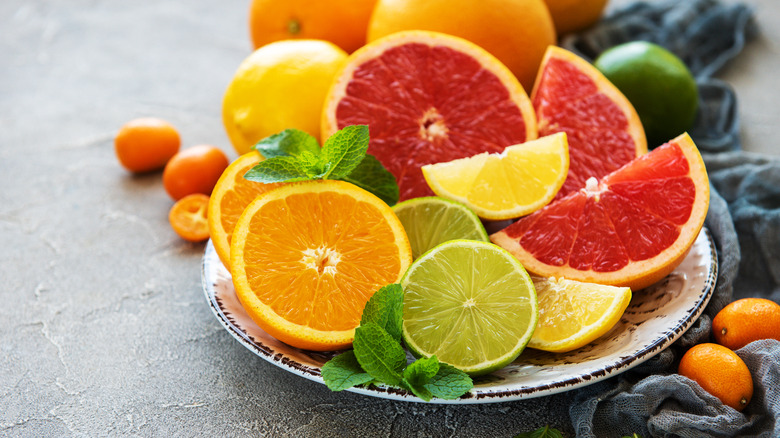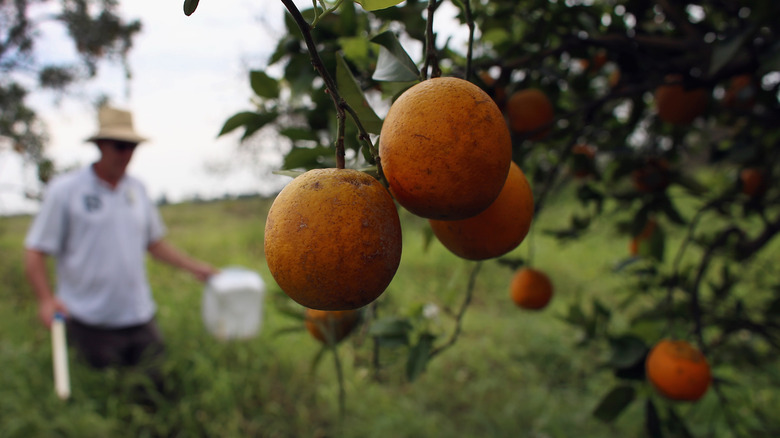Texas-Grown Citrus Is Under Attack. Here's How To Help
An invasive species of fruit fly is jeopardizing the livelihood of citrus farmers in Texas, and the United States Department of Agriculture (USDA) is asking residents in the area for help (via USDA). The USDA's Animal Plant Health Inspection Service (APHIS) is partnering with the Texas Department of Agriculture (TDA) to establish a Southern Texas quarantine zone where they will work with home and landowners to prevent the spread of an invasive fruit fly species, Anastrepha ludens, which hails from Central America and Mexico. Experts say the flies could spell major trouble for numerous fruits in the area, including sweet and sour oranges, grapefruits, key limes, and sweet lemons.
According to a press release, the presence of these flies in Texas has citrus farmers and the USDA concerned over its impact on the State's citrus industry. The USDA notes that this is a $67 million source of revenue for the state. While the fruit flies are not harmful to humans or animals, their presence can threaten more than 40 types of vegetables and fruit that are grown in Texas' Lower Rio Grande Valley region (via South Texas Citrus Alert).
This is not the first time that these fruit flies have threatened the region. Quarantine areas like these have become common tactics over the years to prevent the spread of the invasive insects (via State Impact).
Invasive flies could devastate Texas' citrus industry
To help combat the invasion, USDA's APHIS and the TDA will be conducting surveys and inspections on fruit trees in resident's yards as well as commercial properties (via USDA). The full list of counties being inspected is available on the USDA's website. If fruit flies are discovered, officials may ask for permission to conduct preventative treatments as well.
The USDA has also requested residents in the Rio Grande Valley region relocate any mature citrus fruit, even pieces that have fallen off their respective trees, from their property at their earliest convenience. And, if they are unable to eat the fruit immediately, they're being told to put it into two bags and throw it away. It is also important that residents report agricultural products to the U.S. Customs and Border Protection before bringing it into the United States from outside of the country.
They went on to say that it is best for those living in quarantined areas not to compost homegrown fruit or vegetables, instead discarding trimmings in bags, and noted that fruits and plants should not be taken from these areas to non-quarantined zones.

